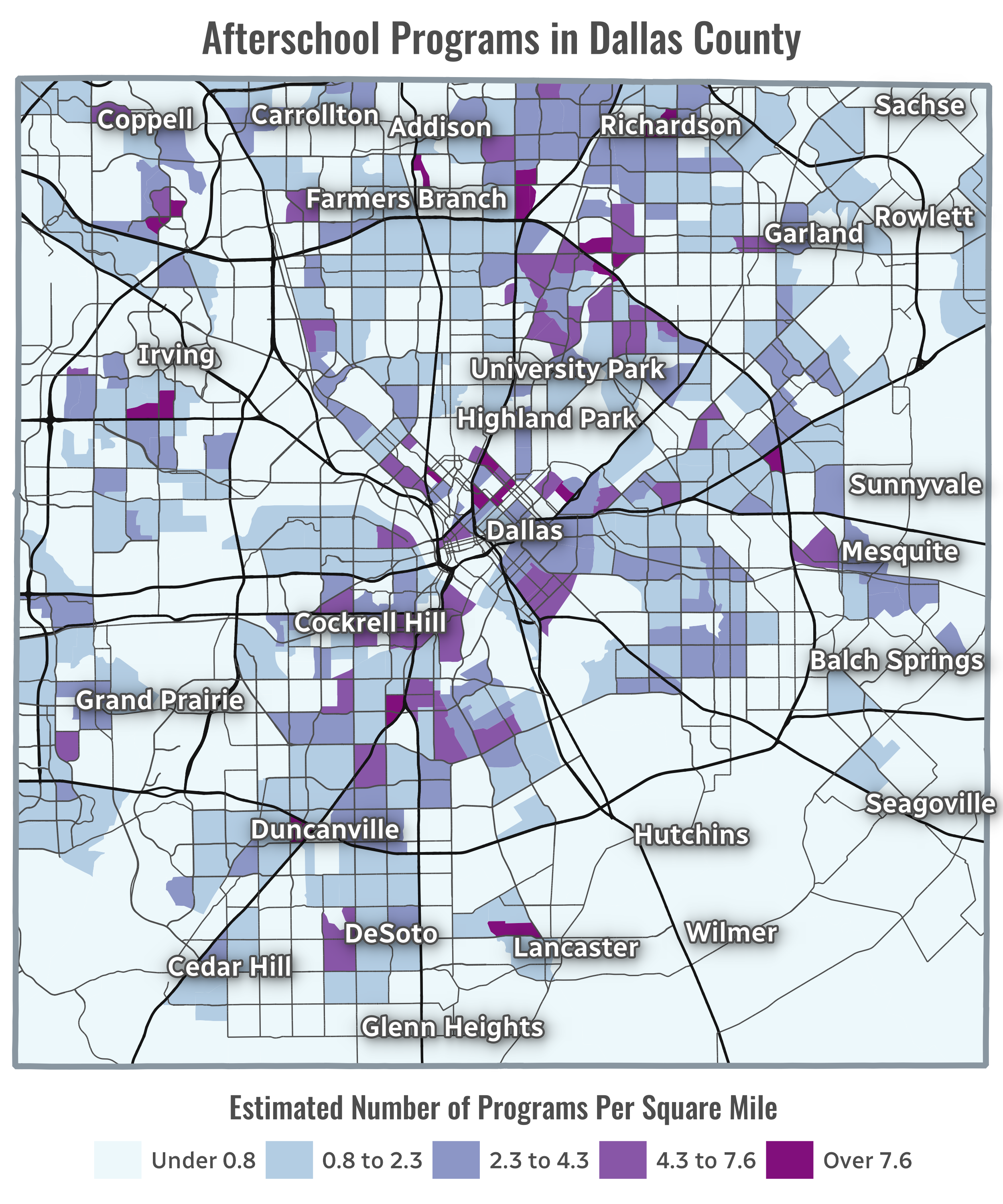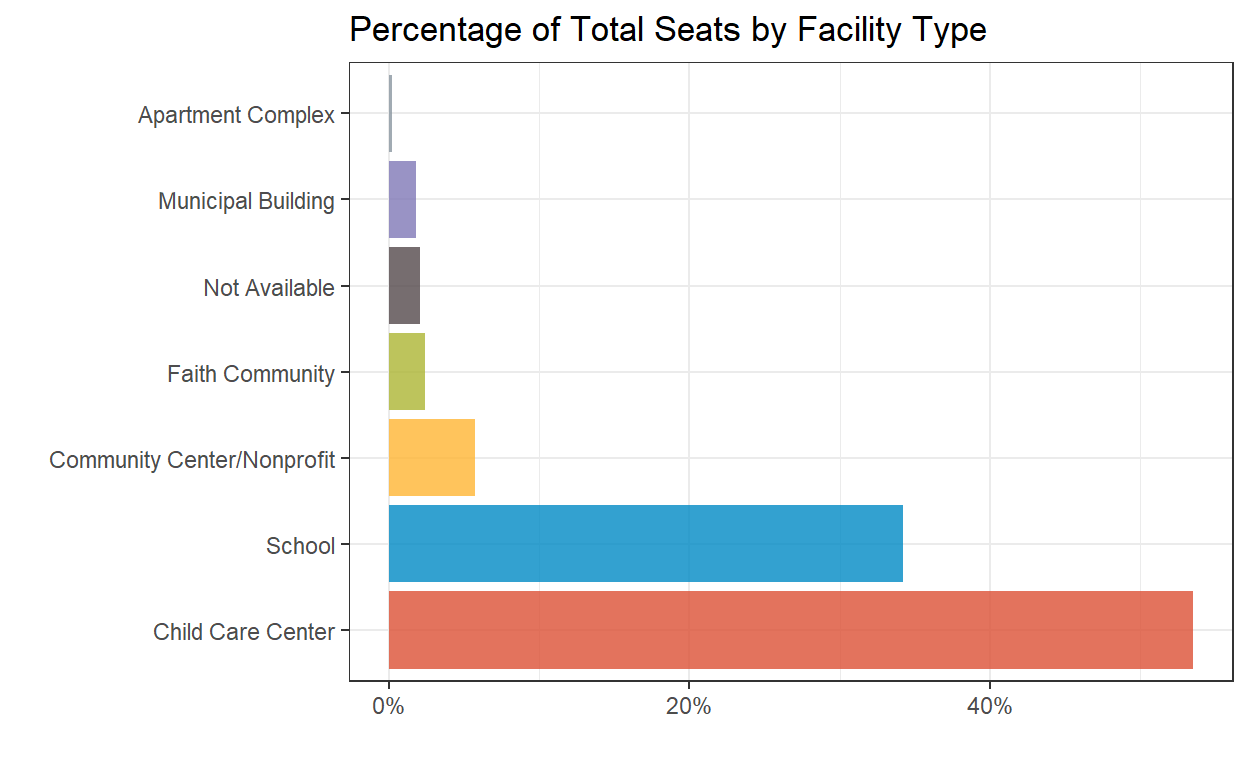To understand the landscape of afterschool programs we assessed two components: the existing afterschool environment (supply) and high need neighborhood characteristics (demand).

Existing Afterschool Environment
There is a greater supply of programs in Dallas compared to the surrounding cities. Furthermore, the majority of afterschool programming takes place either in a school or a child care center. In conjunction they make up 87.7% of all available afterschool seats across Dallas County.
| Facility Type | Total Programs | Seat Capacity | Average Seats | Percent of Seats |
|---|---|---|---|---|
| Not Available | 16 | 1,752 | 110 | 2.1% |
| Apartment Complex | 7 | 207 | 30 | 0.2% |
| Child Care Center | 370 | 45,373 | 123 | 53.5% |
| Community Center/Nonprofit | 55 | 4,841 | 88 | 5.7% |
| Faith Community | 20 | 2,058 | 103 | 2.4% |
| Municipal Building | 35 | 1,559 | 45 | 1.8% |
| School | 380 | 29,045 | 76 | 34.2% |

Programs in Dallas County
High Need Neighborhood Conditions
We understand that the need for afterschool programs in any given neighborhood will vary based on the demographic characteristics of local families and children. To assess where additional programming may have the greatest impact, we identified a number of characteristics for residents who may benefit the most from free or low-cost afterschool programming for their children.
Metrics related to food insecurity, parental commute, single parent households, households facing unemployment, and the child poverty rate were identified as priority characteristics by Dallas Afterschool.
Why Out-of-School-Time (OST) Matters
Research shows that afterschool programs provide essential services for children and their families. Afterschool programs keep youth safe, support working families, and inspire kids to learn and stay engaged in school. Dallas children enrolled in a program are receiving critical resources like homework support, STEM instruction, meals and healthy snacks, and social emotional learning skills. These benefits offer opportunities to bridge the achievement gap between students of lower socioeconomic status and their more affluent peers.
Additionally, Dallas parents report that afterschool programs are a lifeline for their families:
89% of parents with a child in an afterschool program agree that the program helps them keep their job or work more hours
81% of parents overall agree that afterschool programs provide working parents peace of mind
97% of parents overwhelmingly support public funding for afterschool programming
COVID-19
Afterschool and summer programs have not been exempt from the stress and economic strain of the pandemic. Throughout the pandemic, OST providers have pivoted to serve the needs of youth and families:
73% of programs have served youth remotely
62% have connected families to community resources
57% have delivered meals to families
Afterschool programming is an integral component of local communities and is crucial to the post-pandemic recovery. As communities continue to feel the impact of COVID, youth will need expanded support to emerge from this crisis stronger, resilient, and ready to thrive.